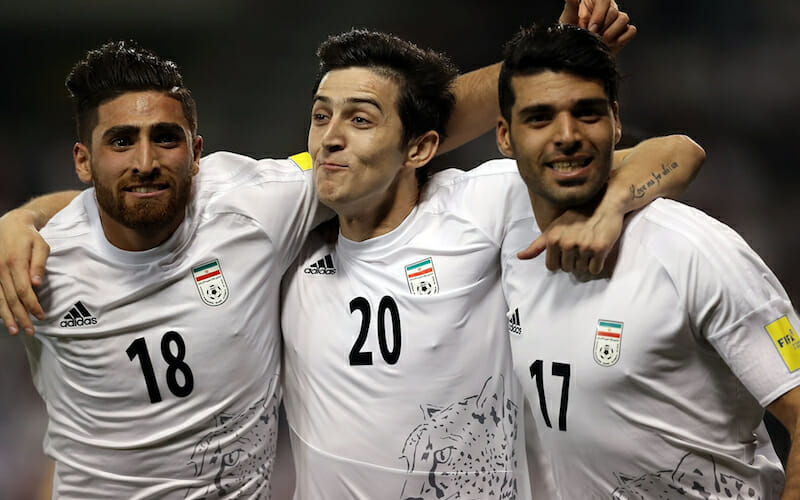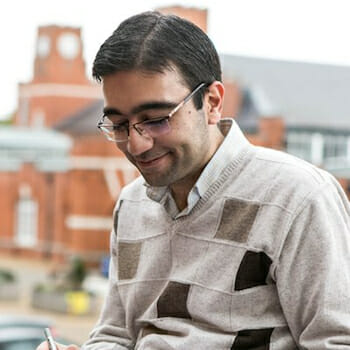
FIFA World Cup: Bringing Unity to a Divided Iran
Association football is not a very successful sport in Iran, but it’s one of the most popular sports in a country with more than half of the population under 35 years old.
It’s conventional for schoolchildren to develop an early passion for football and spend the majority of their leisure time playing with their close friends in the yards, gardens or street football pitches. It can be safely argued that football is the basis for many friendships among young people in small cities and rural areas in Iran.
The culture of football in Iran and the passion it generates is comparable to what happens in Brazil, even though the achievements of the two countries in this sport is in no way analogous. Brazil has won five FIFA World Cup titles and Iran has been able to qualify to only five editions of the FIFA World Cup, including the 2018 games in Russia, and has never reached the next round.
However, football in Iran is a popular athletic activity – the national sport in wrestling – both for the young people who want to spend their time on something useful and the general public and ordinary citizens who boldly consider themselves experts and dexterous commentators on this money-making, growing team sport.
It might be surprising for the Spaniards, the Britons and Italians that their football clubs have millions of fans in Iran. Teams like Real Madrid CF, FC Barcelona, Manchester United, Chelsea F.C., A.C. Milan and Juventus F.C. have ardent supporters in Iran who huddle around TVs every time one of these teams appear in a tournament game and watch the entire game enthusiastically. There are thousands of young Iranians who decorate their living rooms or workplace with symbols and mascots of major European football clubs and even sometimes go the extra mile, if they can afford it financially, to travel to these countries for very important games like UEFA Champions League.
Football frenzy in Iran, however, should be interpreted in a completely different way when it comes to a national football team. The Iran national football team, also known as Team Melli, has conventionally been one of the bigwigs of Asia and currently ranks 37th internationally in the FIFA World Ranking. In August 2015, it was the world’s 15th team in this ranking and has won three Asian trophies. So, it’s one of the strongest teams in Asia, and in the 2018 World Cup qualifiers, it became the second team to secure a spot in the Russia games.
But cheering for Team Melli is not only a matter of supporting a football team. The Lions of Persia represent the ideals, ambitions and aspirations of a young nation that sometimes find sports a venue to express their desires, smiles, joys and frustrations. The Azadi (Freedom) Stadium in Tehran which has a capacity of 100,000 spectators is usually filled with zealous and ardent fans whenever Team Melli appears in an international match. This stadium has been witness to many major and memorable games, in which, regardless of the result, the Iranian squad has showed a satisfactory and encouraging performance thanks to the unwavering attendance of Iranians in the thousands.
Football in Iran, especially during critical junctures such as the FIFA World Cup or Asian Cup events becomes a reason for solidarity and unity, even though Iran is reputed for being a divided society in which people conveniently clash with each other over daily politics, soaring prices, inflation, unemployment, economic woes and the inculcations of clueless politicians.
Iranians see the participation of their national football team in international events with high visibility such as the World Cup a demonstration of their national pride and sovereignty. That’s why traditional rivalry with the football teams of Arab countries such as Saudi Arabia, Bahrain and Iraq usually make the face-off between Iran and these teams more interesting and exciting to watch.
It’s true that there are Iranians in Iran who have learned, sadly, to put the national interests down their list of priorities and boldly cast the patriotism of other Iranians into doubt – those who join the vigilante services and vetting organisations to measure the religiosity of their fellow citizens or reprimand them if they violate the “rules of God” such as the compulsory hijab, those who still live with dogmas such as the unlawfulness of music, cinema and arts and those who criticize the Iran nuclear deal for opening the doors of the nation to the world and lessening the nation’s conventional hostilities with the West, but the majority of Iranians view football from a unique perspective: national unity and public happiness.
The rules of football themselves are somewhat flawed in Iran as of 2018. Women are not allowed to watch football games live in stadiums and nobody clearly understands which religious text or interpretation rules that women should be barred from going to stadiums – the fanatics and hardliners still oppose the opening of the doors of football venues to girls and women, citing religious reasons. However, women are also similarly anxious about the results of football matches in which their national football team faces off against international competitors.
Iran is grouped with Morocco, Spain and Portugal in the group stage of the FIFA World Cup 2018 and all the three teams are heavyweights in their continents. The outcome of the games aside, Iranians are these days fervently and passionately debating the importance of the tournament and keeping their fingers crossed for the successful performance of their national team in the event when such details as which commentator selected by Iran’s state TV will be featured for the games or the refusal of Nike to supply the Iranian squad with football boots citing the U.S. sanctions also seem to be important. Iranians these days are dismayed at Trump, hyperinflation, the devaluation of national currency and their many problems but the presence of their national team in the FIFA World Cup and at least three hot games against three powerful rivals will be a temporary appeasement; unity in an ever-divided society.

